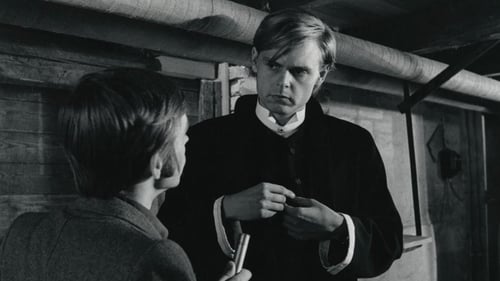
Writer

Screenplay
Jorden Er Flad or The Earth is Flat is based on the play Erasmus Montanus, from the classical era in Danish literature, by Ludvig Holberg. Director Henrik Stangerup had the play translated into Portuguese, and adapted it for filming in contemporary Brazil. In this comic movie, a group of villagers have scrimped and saved to send their fellow villager Erasmus Montanus (Fausto Wolff) away for an education. When the boy returns to his village, he is stuffed full of book-learning of a kind which is of absolutely no use to those of the village. The boy, rather than seeing his situation clearly, continues to spout learned platitudes, including the incredible observation, "the earth is round," supported by nothing other than his authority as an "educated man." Understandably, his posturing provokes derision.

Producer
Jorden Er Flad or The Earth is Flat is based on the play Erasmus Montanus, from the classical era in Danish literature, by Ludvig Holberg. Director Henrik Stangerup had the play translated into Portuguese, and adapted it for filming in contemporary Brazil. In this comic movie, a group of villagers have scrimped and saved to send their fellow villager Erasmus Montanus (Fausto Wolff) away for an education. When the boy returns to his village, he is stuffed full of book-learning of a kind which is of absolutely no use to those of the village. The boy, rather than seeing his situation clearly, continues to spout learned platitudes, including the incredible observation, "the earth is round," supported by nothing other than his authority as an "educated man." Understandably, his posturing provokes derision.

Director
Jorden Er Flad or The Earth is Flat is based on the play Erasmus Montanus, from the classical era in Danish literature, by Ludvig Holberg. Director Henrik Stangerup had the play translated into Portuguese, and adapted it for filming in contemporary Brazil. In this comic movie, a group of villagers have scrimped and saved to send their fellow villager Erasmus Montanus (Fausto Wolff) away for an education. When the boy returns to his village, he is stuffed full of book-learning of a kind which is of absolutely no use to those of the village. The boy, rather than seeing his situation clearly, continues to spout learned platitudes, including the incredible observation, "the earth is round," supported by nothing other than his authority as an "educated man." Understandably, his posturing provokes derision.

Director
In this Danish suspense film, the foibles of the psychological helping professions are wryly surveyed. A woman has murdered her husband. That's clear enough. Now the woman is in a psychiatric hospital because it seemed clear to the judges that she was not fully competent. Her doctor, who is helping her a great deal, has problems of his own. First, he is against the cookie-cutter treatment practices of his hospital, second, he is on shaky mental ground himself. Then he violates his therapeutic ethics by carrying on an affair with the woman he is treating.

This is a film about the stuff dreams are made of, yet, there is nothing elevated in this concept, on the contrary. The characters around the bar Strudsen (the ostrich) are doing what ostriches do, hiding themselves from the threats of life and keeping their dreams to themselves. Scriptwriter Benny Andersen being a poet is rendering a loving portrait of a number of persons, who fail to try to make their dreams come true, possibly not being sufficiently dissatisfied with their life after all. The manager would like a bar of his own but dare not admit to it, the butcher would like to be an opera singer, the window cleaner (sorry, window polisher) is secretly in love with the bar lady, but dare not show it and the pianist willingly listens to all the different dreams being presented to him. This film was the best accomplished movie from Henning Carlsen since his debut with 'Sult'.

"Give God a chance on Sunday" - A young priest thinks he's found out what he needs to do to better his church.

Director
"Give God a chance on Sunday" - A young priest thinks he's found out what he needs to do to better his church.

Writer
The mysterious Mr. Steinmetz has the acquired the ability to create things and beings by will alone. Only, after a while his creations invariably disappear. He therefore approaches a famous brain surgeon, Max Holst, who he hopes can help him with this problem. When Max refuses, Steinmetz brings his doppelgänger into being to replace him.







